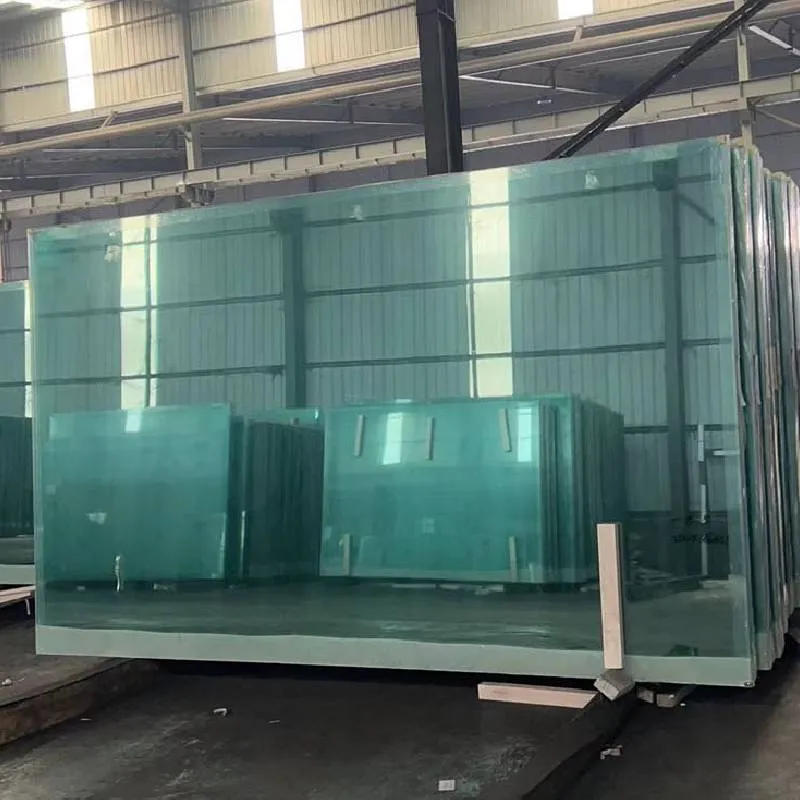The Versatility of 4mm Float Glass
Float glass, a standard type of glass product, is widely recognized for its clarity and smooth surface. Among its various thicknesses, 4mm float glass has gained significant popularity in construction, automotive, and decorative applications. This article will explore its properties, benefits, and various uses, offering insight into why 4mm float glass is a preferred choice for many projects.
Understanding Float Glass
Float glass is produced through the float glass process, wherein molten glass is floated on molten tin. This method allows for a uniform thickness and a highly polished surface. As a result, float glass exhibits minimal distortion and excellent optical clarity. The 4mm thickness offers an ideal balance between strength and weight, making it manageable for various applications.
Properties of 4mm Float Glass
One of the most significant advantages of 4mm float glass is its durability. It is capable of withstanding both environmental and physical stresses, making it suitable for various conditions. Additionally, 4mm float glass has excellent light transmission properties, allowing natural light to illuminate spaces effectively while providing a clear view. Its smooth surface is easy to clean and maintain, reducing the hassle of upkeep in residential and commercial settings.
Benefits of Using 4mm Float Glass
4mm float glass
The versatility of 4mm float glass extends to its aesthetic appeal. The clarity and finishing of the glass enhance the overall look of a space, making it a popular choice in modern architecture. Whether used in windows, facades, or partition walls, 4mm float glass creates a sophisticated and bright environment. Furthermore, its lightweight nature simplifies transportation and installation, reducing labor costs and time on site.
Another essential benefit is that 4mm float glass can be easily treated or processed. It can be cut, polished, or coated to meet specific requirements, such as increased thermal insulation or UV protection. This adaptability ensures that designers and architects can utilize 4mm float glass in various projects while achieving desired functionality and aesthetics.
Applications of 4mm Float Glass
The applications for 4mm float glass are extensive. In construction, it is commonly used for windows and doors, providing an energy-efficient solution for residential and commercial buildings. In the automotive industry, 4mm float glass is utilized in side windows and windshields, contributing to safety and visibility. Additionally, its use in interior design is growing, with applications including glass partitions, table tops, and decorative elements that enhance visual appeal.
Conclusion
In conclusion, 4mm float glass is a highly versatile material that meets various needs across different industries. With its impressive durability, aesthetic qualities, and adaptability, it stands out as a preferred choice for architects, builders, and designers alike. As trends in construction and design continue to evolve, the demand for high-quality float glass is likely to increase, cementing its place as a fundamental material in modern applications. Embracing this glass will undoubtedly continue to shape the way we experience light and space in our environments.
 Afrikaans
Afrikaans  Albanian
Albanian  Amharic
Amharic  Arabic
Arabic  Armenian
Armenian  Azerbaijani
Azerbaijani  Basque
Basque  Belarusian
Belarusian  Bengali
Bengali  Bosnian
Bosnian  Bulgarian
Bulgarian  Catalan
Catalan  Cebuano
Cebuano  Corsican
Corsican  Croatian
Croatian  Czech
Czech  Danish
Danish  Dutch
Dutch  English
English  Esperanto
Esperanto  Estonian
Estonian  Finnish
Finnish  French
French  Frisian
Frisian  Galician
Galician  Georgian
Georgian  German
German  Greek
Greek  Gujarati
Gujarati  Haitian Creole
Haitian Creole  hausa
hausa  hawaiian
hawaiian  Hebrew
Hebrew  Hindi
Hindi  Miao
Miao  Hungarian
Hungarian  Icelandic
Icelandic  igbo
igbo  Indonesian
Indonesian  irish
irish  Italian
Italian  Japanese
Japanese  Javanese
Javanese  Kannada
Kannada  kazakh
kazakh  Khmer
Khmer  Rwandese
Rwandese  Korean
Korean  Kurdish
Kurdish  Kyrgyz
Kyrgyz  Lao
Lao  Latin
Latin  Latvian
Latvian  Lithuanian
Lithuanian  Luxembourgish
Luxembourgish  Macedonian
Macedonian  Malgashi
Malgashi  Malay
Malay  Malayalam
Malayalam  Maltese
Maltese  Maori
Maori  Marathi
Marathi  Mongolian
Mongolian  Myanmar
Myanmar  Nepali
Nepali  Norwegian
Norwegian  Norwegian
Norwegian  Occitan
Occitan  Pashto
Pashto  Persian
Persian  Polish
Polish  Portuguese
Portuguese  Punjabi
Punjabi  Romanian
Romanian  Russian
Russian  Samoan
Samoan  Scottish Gaelic
Scottish Gaelic  Serbian
Serbian  Sesotho
Sesotho  Shona
Shona  Sindhi
Sindhi  Sinhala
Sinhala  Slovak
Slovak  Slovenian
Slovenian  Somali
Somali  Spanish
Spanish  Sundanese
Sundanese  Swahili
Swahili  Swedish
Swedish  Tagalog
Tagalog  Tajik
Tajik  Tamil
Tamil  Tatar
Tatar  Telugu
Telugu  Thai
Thai  Turkish
Turkish  Turkmen
Turkmen  Ukrainian
Ukrainian  Urdu
Urdu  Uighur
Uighur  Uzbek
Uzbek  Vietnamese
Vietnamese  Welsh
Welsh  Bantu
Bantu  Yiddish
Yiddish  Yoruba
Yoruba  Zulu
Zulu 

